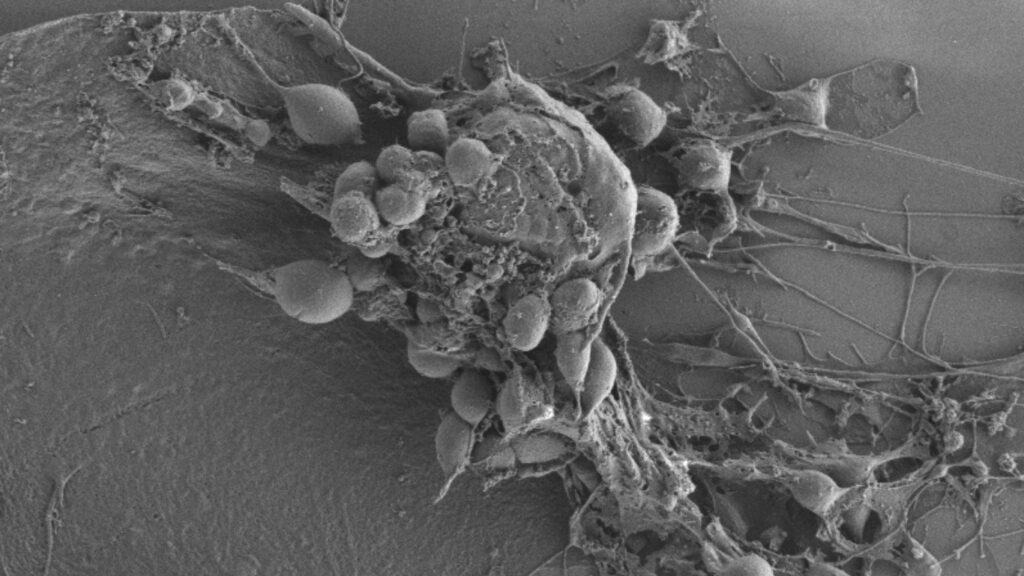Apoptosis is the mechanism by which defective cells in the body promote their own death in order to protect the body. It is a complex process, with many stages, during which the different parts of the cell are degraded. In glioblastoma cells, however, although apoptosis begins, it stops at one of the stages, allowing the cell to survive.
In previous work, researchers had shown that glioblastoma cells have too low levels of DFF40 / CAD, a protein that, during apoptosis, organizes the breakdown of the cell nucleus. This deficiency causes the nuclear fragmentation phase to not complete and the cell to recover.
This article, published in the journal Cancers, has been coordinated by Dr. Víctor J. Yuste, professor of the Department of Biochemistry and Molecular Biology at the UAB Faculty of Medicine and researcher at the UAB Institute of Neurosciences (INc-UAB), and has counted on the participation of the Neurooncology group of the IDIBELL, the ICO and HUB.
Researchers gave tumor cells a substance derived from the cotton plant, gossipol, which boosts DFF40 / CAD activity. The result is that in the treated cells, the fragmentation process is completed and the cell dies. Unlike other drugs, gossipol allows DFF40 / CAD to remain in the cell nucleus for longer, thereby promoting its fragmentation. This study shows that compounds such as gossipol can push glioblastoma cells to a point of no return after starting the process of cell death without the need to genetically modify them.
As the researchers explain, promoting that apoptosis ends properly in patients’ tumor cells could be a good therapeutic strategy to treat glioblastoma. The new results help better understand the biology of this aggressive tumor and can provide researchers with new tools for developing more effective strategies. This is especially interesting because there is currently no cure for this disease.
This study is the result of a close collaboration between basic and clinical research. Dr. Víctor J. Yuste of the INC has led a multidisciplinary team of basic researchers, neuro-oncologists, pathologists and neurosurgeons, from the UAB, from the Bellvitge Biomedical Research Institute (IDIBELL) – Bellvitge University Hospital (HUB ), the Catalan Institute of Oncology (ICO), the Catalan Institute of Nanoscience and Nanotechnology (ICN2) and the Lleida Biomedical Research Institute (IRBLleida). This research has been funded by the Ministry of Science and Innovation, and co-financed with ERDF funds.

